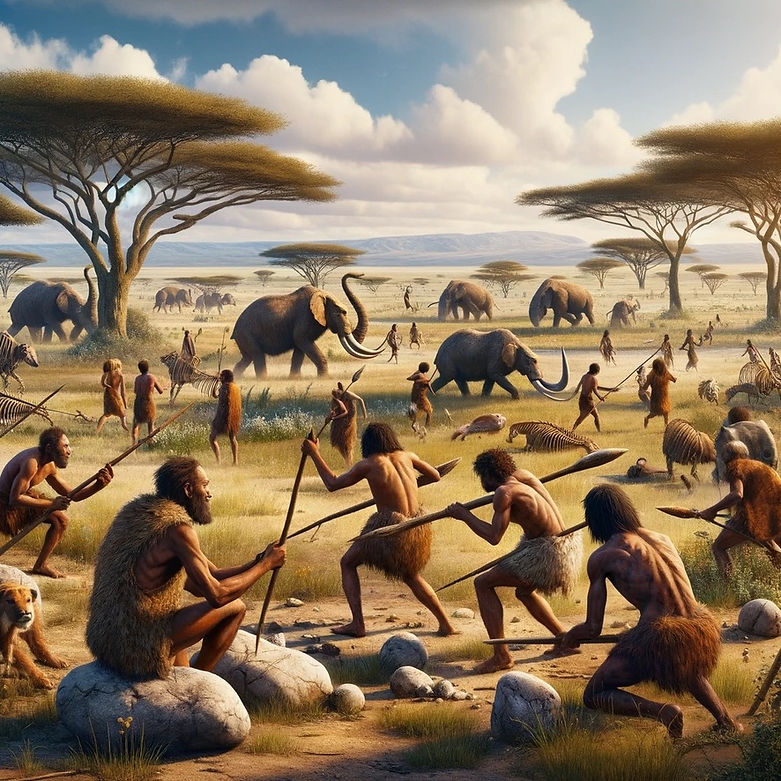

Facultative Carnivore Reasons
This database provides evidence for a hypothesis that humans evolved into facultative carnivores, a type of omnivore that thrives off an all-meat diet, but can survive on fallback foods like gathered plants. We would expect a roughly herbivorous diet with our Last Common Ancestor of Chimpanzees, between 6-10 million years ago. It may have been somewhat bipedal and somewhat arborial. What caused it to evolve to have some many different charactistics compared to other apes? One possibility is that early humans hunted small prey in forests and scavenged for meat on savannahs, increasing the amount of animal protein and fat in their diets. Perhaps persistence running played a role in allowing us to capture megafauna that run away, while tool enhancement, traps, and cooperation allowed us to capture and eat the largest megafauna. We may have targeted the "prime adults" at best seasonal opportunity when animals are known to carry more fat. We could characterize ourselves as omnivores, facultative carnivores, carnivores, apex carnivores, lipivores who nutritionally thrive on a high-fat (60-85% calories), moderate protein (15-35% calories), zerocarb (less than 5% calories, as low as 0 grams/day), zero fiber (0 grams/day), low linoleic acid (2-5% total calories), high omega balance ( total n-3 pufa / total pufa * 100).
However, we do find evidence of increasing plant consumption, especially since the dawn of agriculture, which have led to certain genetic changes that may have made us better omnivores than facultative carnivores. That said, the bulk of our evolution history appears to be under a carnivorous context, so using carnivore diets today may lead to fewer evolutionary mismatches. So the hypothesis is focused on hypercarnivorous diets that led to the best health, whereas hypocarnivorous diets allow survivability, but increase chronic disease in various ways, and have become necessary as megafauna access was wiped out over thousands of years.
Topics: Genetics, Human Evolution, Comparative Anatomy, Animal Fat, Megafauna, Hunting, Stone Tools, Nutrition, Saturated Fat
For a more recent but also more general view of this evidence, subscribe to:
https://www.reddit.com/r/Meatropology
Click on the Red buttons to open more information about the reason, including a details section with important parts of science papers that allude to the hypothesis.
acidic-stomach-acid
Title:
Highly Acidic Stomach Acid
Abstract:
Human stomach acid is 1 - 2 pH, which is as acidic as other carnivorous animals.
Hypothesis
We do not currently know the exact stomach pH of fasted great apes such as chimpanzees or bonobos.
If we were to measure the stomach pH - we'd expect to see more herbivorous values - perhaps 3-5 pH if not higher (less acidic).
We might expect to see less efficient processing of large quantities of meat because the chimpanzee stomach is not able to make highly acidic acid.
We might expect the stomach acid to adapt over time to a meat diet - maybe it will get stronger.
We know humans get weaker stomach acid over time - but perhaps this is a function of eating high carb diets for a long time - does stomach acid get stronger after being on a carnivorous diet?



